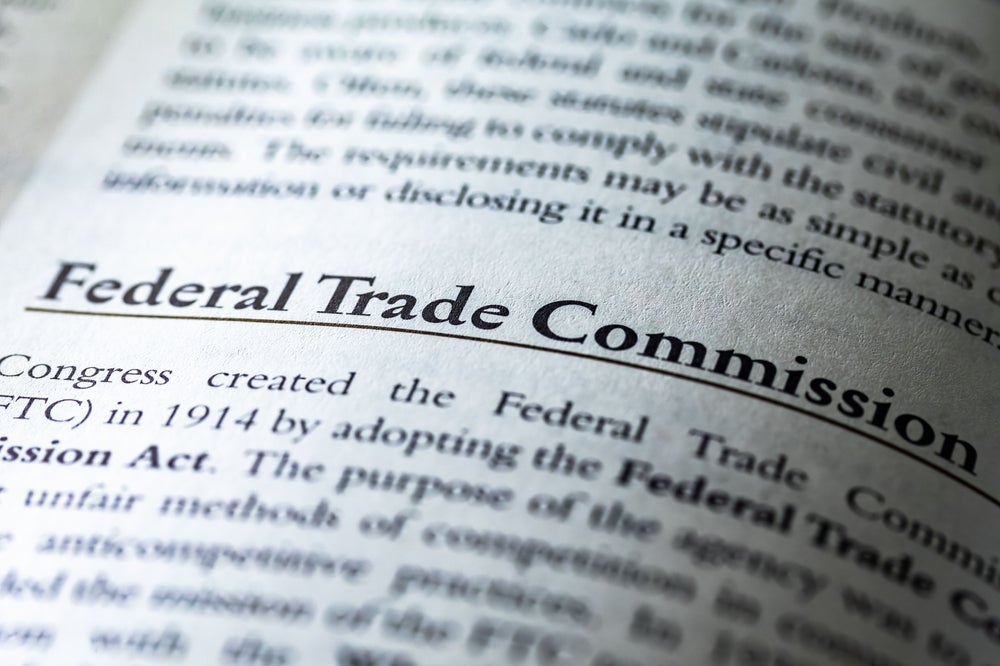Banner artwork VectorMine / Shutterstock.com
From Peloton memberships to New York Times subscriptions, auto-renewal contracts, also known as “evergreen contracts,” have become part of the business landscape. But ubiquitous doesn’t mean trouble-free.
Lessons from auto-renewal controversies
In fact, the New York Times Company recently agreed to a settlement of US$5.5 million regarding noncompliance with California auto-renewal laws. The class-action lawsuit alleged that the New York Times automatically renewed its customers’ digital, print, and standalone subscription offerings and charged customers’ payment methods without providing the disclosures and authorizations required by California’s auto-renewal law. The Times denied these claims but nonetheless agreed to a proposed settlement to avoid the expense and risks of continuing the lawsuit.

In June 2023, the FTC filed a complaint against Amazon alleging deceptive practices that enticed consumers to buy auto-renewal Amazon Prime memberships, which were purposefully designed to be difficult to cancel.
Such deceptive practices are also called “dark patterns.”
"Amazon tricked and trapped people into recurring subscriptions without their consent," FTC Chair Lina Khan recently remarked.
The New York Times case and the Amazon case are two stark warnings for corporate counsel who advise on consumer facing, auto-renewal arrangements.
In September 2023, the FTC amended this complaint to include three senior Amazon executives by name and previously redacted details from internal company messages. The New York Times case and the Amazon case are two stark warnings for corporate counsel who advise on consumer-facing, auto-renewal arrangements. When an auto-renewal clause is part of a commercial contract between two businesses, it is generally negotiated by their respective legal counsel. However, when a business-to-consumer contract includes an auto-renewal clause, it is not negotiated, and businesses must comply with a variety of legal requirements comprising state auto-renewal laws (ARLs) and federal regulations, including the Federal Trade Commission Act and Restore Online Shoppers’ Confidence Act.

This article provides an overview of seven key considerations for creating compliant auto-renewal contracts under state ARLs and alerts corporate counsel to the FTC’s recent focus on auto-renewal contracts.
The ARLs in New York and California are the strictest. For the purposes of this article, we primarily consider those state laws to capture seven common compliance requirements. Note that not every state has enacted an ARL, and not all the states that have enacted an ARL require all seven compliance requirements listed below.
In addition, we rely on New York’s law for its definition of automatic renewal:
“Automatic renewal” means any plans or arrangements in which a paid subscription or purchasing agreement is automatically renewed at the end of a definite term for a subsequent term.
1. Clear and conspicuous
The auto-renewal language must appear in a “clear and conspicuous” manner — either in larger font size than the surrounding text, in contrasting style and font (e.g., ALL CAPS), or delineated from adjacent text with symbols or other markers to ensure it stands out clearly.
For example, the Vermont statute requires the auto-renewal provision to be clear and conspicuous, written in plain, unambiguous language and in bold font.
2. Required disclosures
The auto-renewal language must state that the subscription will automatically continue until the consumer cancels, list the amount of the recurring charges, provide the length of the auto-renewal period, and, if there is a minimum purchase obligation, it must be stated. The cancellation policy logistics must be described. If the offer includes a free trial period, the amount that will be charged when the trial period ends must be stated.
3. Consent mechanism
The consumer must consent to the auto-renewal contract. A checkbox is generally considered the best way to capture the consumer’s consent, and under the FTC’s recently proposed rules a checkbox would be considered a “best practice.”
Another reliable consent mechanism is a click-through button with text that reads:

Artwork by ninefootstudio / Shutterstock.com
Another reliable consent mechanism is a click-through button with text that reads:
“Buy Now: By clicking this button, you agree to place your order and to accept the Terms and Conditions of the Service.”
Counsel should always research the requirements under the laws applicable to their company’s provision of services (or goods). For example, the Vermont statute requires that the consumer affirmatively opt into the auto-renewal provision itself, in addition to accepting the terms of the contract, and New York’s ARL excludes security-alarm operators and banks.
4. Post-purchase acknowledgement
A common ARL compliance requirement is that the company’s post-purchase acknowledgement must be in a form that the consumer may retain easily (e.g., an email). It must include the auto-renewal terms, the cancellation policy, and a simple way to cancel (e.g., a cancellation button).
5. Cancellation process requirements
Under several ARLs, including both the New York and the California statutes, if the consumer can enroll online, then the cancellation process must also be via an online mechanism such as a “CLICK HERE TO CANCEL” button prominently located and easily accessible (e.g., in the consumer’s account profile).

Other statutory compliant cancellation mechanisms include providing a toll-free number for the consumer to call or an email address to which the consumer may write a cancellation request. Under most ARLs, the company must ensure that the consumer’s cancellation is immediate without obstruction or delay.
6. Renewal notice
Renewal notice language must be “clear and conspicuous,” stating that the contract will renew automatically unless the consumer cancels. The language must also provide contact information for the business and at least one of the aforementioned ways for the consumer to cancel. If additional terms apply, or the price increases upon renewal, the notice must specify that.
Renewal notice language must be "clear and conspicuous," stating that the contract will renew automatically unless the consumer cancels.
Several state ARLs have precise requirements as to when the notice is sent vis-à-vis the end of the initial term. For example, California’s ARL requires that if a consumer agreed to a subscription with an initial term of one year or longer, the company must send the renewal notice between 15 and 45 days before the end of that initial term. Delaware’s ARL states that the renewal notice also include the date the contract will renew and the day by which the consumer must cancel to avoid the auto-renew.
7. Notice of material changes
If the business materially changes the terms of the arrangement, it must notify the consumer in clear and conspicuous language, sending information on how the consumer may cancel and using a format that enables the consumer to easily retain the notice.
FTC’s proposed changes to auto-renewal contracts
Looking ahead, corporate counsel should stay apprised of the FTC’s recent focus on auto-renewal contracts. In particular, the FTC’s Notice of Proposed Rulemaking, issued in March 2023, proposes dramatic changes to the FTC’s Negative Option Rule FTC’s Proposed Rule”). The FTC considers automatic renewal clauses to be negative option offers, and the Proposed Rule would significantly expand the scope of the current Negative Option Rule, incorporating compliance obligations that exceed or match those in the strictest ARLs. Like the strictest ARLs, the FTC’s Proposed Rules would require, among other parameters, clear and conspicuous disclosures of auto-renewal provisions, a consumer’s affirmative consent, and easy cancellation procedures. Importantly, the FTC’s Proposed Rule will apply to both business-to-consumer and business-to-business auto-renewal contracts, thus potentially subjecting all corporate automatic renewal contracts to stringent federal regulatory compliance requirements and related civil penalties.
While good-faith exceptions to noncompliance exist, actual compliance is always the best practice and the best defense.
Currently, several ARLs impose legal consequences and penalties for noncompliance, which include the entire contract being voided, monetary penalties, products or services being deemed an unconditional gift, class-action lawsuits, and enforcement actions. For example, in the District of Columbia, a violation of its ARL equates to a violation of its Consumer Protection Procedures Act (D.C. Code Section 28A-203(d)). While good-faith exceptions to noncompliance exist, actual compliance is always the best practice and the best defense.
Five questions in-house counsel should ask themselves while drafting automatic renewal contracts:
- Are the disclosures clear and conspicuous, aligning with the applicable state ARL?
- By what mechanism does the consumer consent? Check box? Signature?
- Does the post-purchase acknowledgement include the auto-renewal terms, the cancellation policy, and information on how to cancel?
- Do the renewal notices or reminders meet the timing requirements per the applicable ARL? Do they describe the cancellation process in clear and conspicuous terms?
- Is the cancellation method as simple as the enrollment method (e.g., “Click here to cancel” button)?
Disclaimer: The information in any resource in this website should not be construed as legal advice or as a legal opinion on specific facts, and should not be considered representing the views of its authors, its sponsors, and/or ACC. These resources are not intended as a definitive statement on the subject addressed. Rather, they are intended to serve as a tool providing practical guidance and references for the busy in-house practitioner and other readers.





